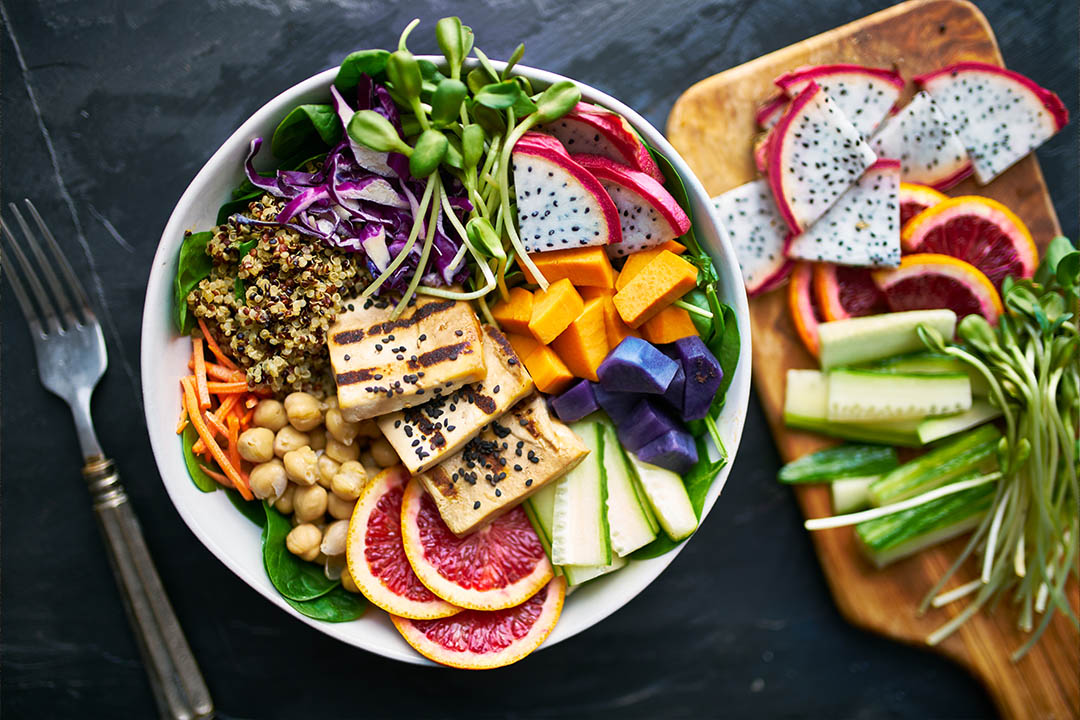
19 Dec Reduce Chronic Pain with a Healthy Gut
Reduce Chronic Pain with a Healthy Gut
by Ashleigh Feltham, Accredited Practising Dietitian and Accredited Nutritionist.
Are you one of the many Australians living with chronic pain? Chronic pain can be debilitating and reduce quality of life. One in every five Australians over the age of 45 currently live with chronic pain.
There are many strategies that help reduce symptoms associated with chronic pain. One strategy you may not have thought of is a change of lifestyle.
The types of microbes that live in your gut are as unique to you as your fingerprint, and everyone has their own optimal gut microbiome. The health of your gut microbiome increases with a balance and variety of health-promoting microbes.

Your gut microbiome is a prime controller of visceral pain. Visceral pain is what you feel around your abdomen, chest, and pelvis. New research suggests that your gut microbiome may also modulate other types of pain, including chronic pain. Types of chronic pain that your gut microbiome may influence are headaches, and inflammatory pain such as arthritis, neuropathic, or nerve pain. Your gut microbiome also influences your tolerance to opioid medication prescribed to help manage chronic pain.
The ability of your gut microbiome to influence chronic pain is predicted to be due to the signals released from microbes. These signals regulate how sensitive you are to pain and consequently influences how much pain you experience on an ongoing basis, or chronically.
Key lifestyle strategies you can implement to support a healthy gut include:
- Structuring your plate each meal to be half produce and snacks to be half plant-based food. This could include foods such as nuts, seeds, vegetables, fruit, legumes, beans and wholegrains.
- If you are an adult, aim for 25-38g of dietary fibre each day. This may seem like a lot, but if you structure your meals and snacks as above you will be well on your way to achieving these dietary fibre goals. Include inulin, a type of soluble and prebiotic fibre. Soluble fibre helps to create a softer stool, which is more comfortable to pass. Prebiotic fibre is a type of carbohydrate that your body cannot digest. It feeds the health-promoting microbes in your gut. When these microbes feed on prebiotic fibre, they create messages that promote health in your entire body.
- Enjoy two serves of probiotic-rich foods or drinks each day. This could include yoghurt, miso, tempeh, kefir, sauerkraut or natto. Probiotic foods provide an array of different health promoting microbes to support your optimal gut health. Food is the best first approach over a supplement, which often includes just one or two strains of probiotics. By including varied probiotic-rich foods each day, you are giving your gut a range of different types of health promoting microbes. Each of these microbes supports your health in different ways.
- Aim for 30 different plant-based foods each week. Health-promoting microbes all need different sources of fuel. Each different type of plant food provides different prebiotic fibre as well as polyphenols to feed helpful microbes. This is why variety in your diet is a key component in creating a healthy gut microbiome.
- Add two to three serves of seafood a week. A serve of seafood is one hundred grams of cooked weight. The type of fat found in seafood called omega-3, is linked to a healthy gut microbiome. Good sources of omega-3 fat include fatty fish, like salmon, sardines, anchovies, herring, mackerel and barramundi.

Take home message:
Looking after the health of your gut is essential for many reasons. If you suffer from chronic pain, achieving a healthy gut could be a key factor in improving your quality of life to relieve the degree of chronic pain you experience.
References:
- Guo R, Chen LH, Xing C, Liu T. Pain regulation by gut microbiota: molecular mechanisms and therapeutic potential. Br J Anaesth. 2019 Nov;123(5):637-654. doi: 10.1016/j.bja.2019.07.026. Epub 2019 Sep 21. PMID: 31551115
- Chronic Pain in Australia. Australian Institute of Health and Welfare.
